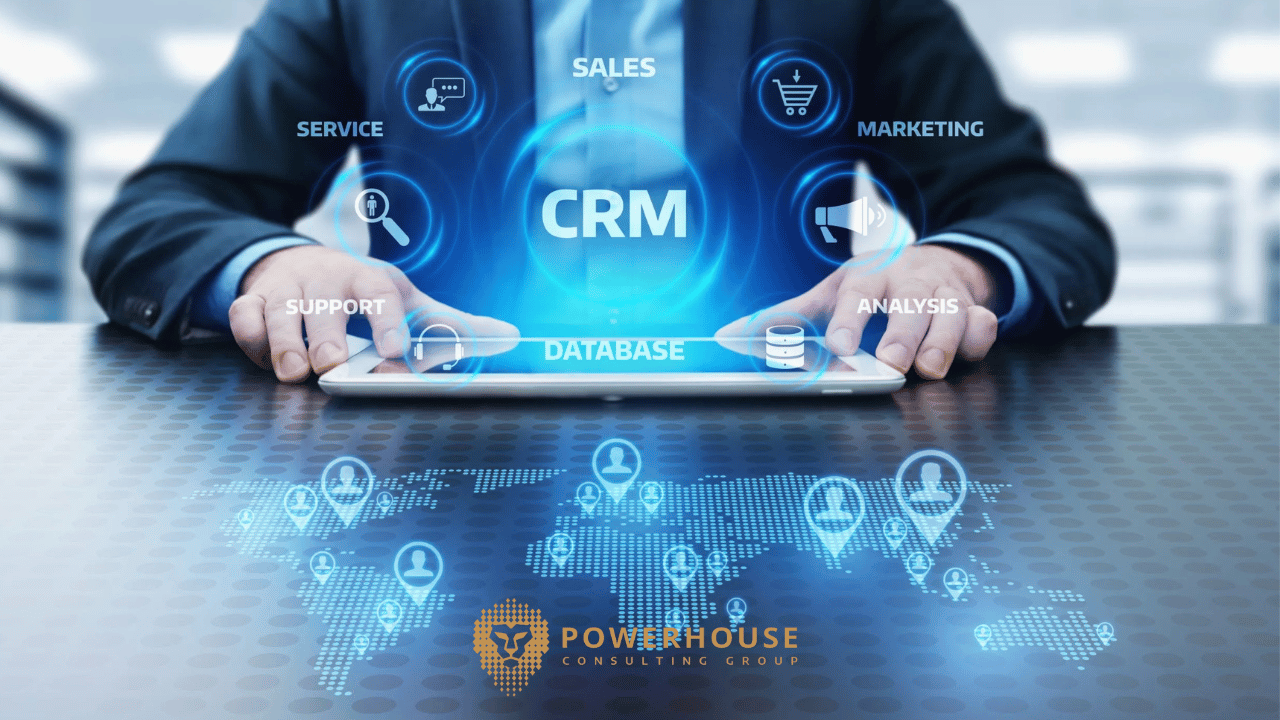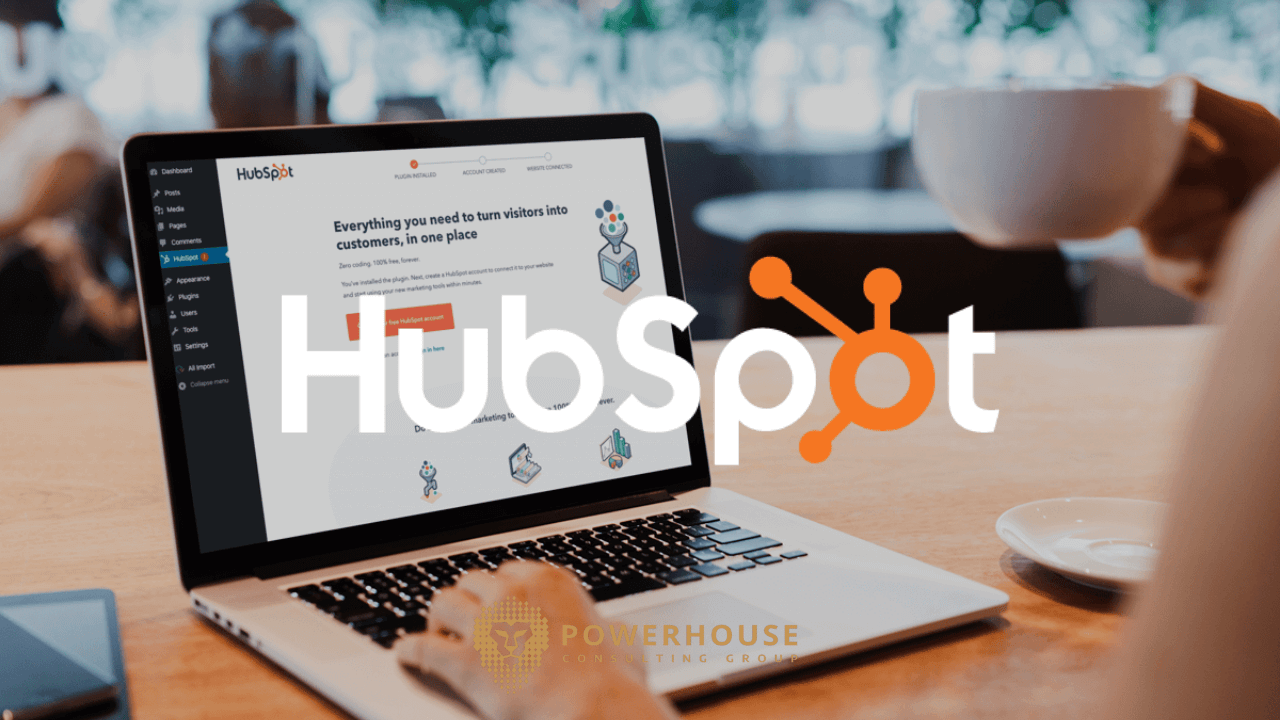
This post may contain affiliate links. Click here to find out more about this.
Table of Contents
In today’s highly competitive business landscape, small businesses often operate with lean teams and limited resources. Yet, the expectation for personalized customer experiences and seamless interactions has never been higher. This is where Customer Relationship Management (CRM) systems become not just beneficial, but essential.
A CRM is a technology that helps businesses manage and analyze customer interactions and data throughout the customer lifecycle to improve business relationships with customers, assist in customer retention, and drive sales growth. For small businesses, a well-implemented CRM like HubSpot can be the strategic ally that levels the playing field, transforming how they acquire, engage, and delight their customers.
The Foundational Benefits of CRM for Small Businesses
Small businesses thrive on strong relationships. A CRM system provides a centralized hub for all customer-related information, moving beyond scattered spreadsheets and disparate communication channels.

1. Centralized Customer Data: A Single Source of Truth
One of the most immediate advantages of a CRM is the consolidation of all customer and prospect data. Imagine having every interaction, purchase history, preference, and communication log in one easily accessible location.
- No More Scattered Information: Forget hunting through emails, notes, or individual spreadsheets. A CRM brings everything together.
- Complete Customer View: Every team member, from sales to support, has access to a holistic view of each customer, enabling more informed and personalized interactions.
- HubSpot’s Approach: HubSpot’s free CRM, for instance, allows you to store up to 1,000,000 contacts with no time limit, providing a robust database that grows with your business. This centralized database is the backbone for all other CRM functionalities.
2. Enhanced Customer Relationships and Personalization
Customers today expect businesses to know them. A CRM facilitates this by providing the insights needed to personalize every touchpoint.
- Tailored Communication: With a CRM, you can track customer interaction history, allowing you to craft truly personalized messages and offers that resonate with individual needs and preferences.
- Proactive Engagement: Understand customer behavior to anticipate their needs and proactively address potential issues or offer relevant solutions.
- Boosting Loyalty: Personalized experiences foster trust and loyalty, encouraging repeat business and positive word-of-mouth referrals.
3. Streamlined Sales Processes and Increased Efficiency
Sales teams in small businesses often wear many hats. A CRM automates repetitive tasks and provides clear visibility into the sales pipeline, freeing up valuable time for selling.
- Lead Management and Tracking: From initial contact to conversion, a CRM helps organize and prioritize leads based on their potential. HubSpot, for example, allows you to easily manage your sales pipeline, track deals, and gain insights into your performance.
- Sales Automation: Automate follow-up emails, task reminders, and meeting scheduling. This ensures no lead falls through the cracks, and your sales team can focus on building relationships. HubSpot’s Sales Hub offers features like email templates, meeting links, and sequences to streamline outreach.
- Improved Sales Forecasting: With a clear view of your pipeline and historical data, you can more accurately forecast sales, allowing for better resource allocation and business planning.
4. Optimized Marketing Efforts
For small businesses, every marketing dollar counts. A CRM helps segment audiences, personalize campaigns, and measure effectiveness, leading to higher ROI.
- Targeted Marketing Campaigns: Segment your customer base based on demographics, behavior, and preferences to deliver highly relevant marketing messages.
- Marketing Automation: Automate email marketing campaigns, lead-nurturing sequences, and social media interactions. HubSpot’s Marketing Hub seamlessly integrates with its CRM, enabling businesses to create personalized email campaigns, track engagement, and manage ad performance from a single platform.
- Performance Tracking and Analytics: Monitor the performance of your marketing activities in real-time, identifying what works and what needs adjustment. HubSpot’s built-in analytics provide insights into user sessions, conversion rates, and ROI.
5. Superior Customer Service and Support
Exceptional customer service is a key differentiator for small businesses. A CRM empowers your support team to deliver fast, informed, and personalized assistance.
- Faster Issue Resolution: With immediate access to a customer’s history, support agents can quickly understand their needs and provide efficient solutions.
- Consistent Support: Ensure a consistent customer experience across all communication channels by having a unified record of interactions.
- Proactive Support: Identify potential issues before they escalate, turning potential frustrations into opportunities for delight. HubSpot’s Service Hub provides tools like ticketing, live chat, and a knowledge base to enhance customer support.
HubSpot: The Small Business Champion
While numerous CRM solutions exist, HubSpot stands out as an exceptionally valuable platform for small businesses due to its user-friendly interface, comprehensive features, and flexible pricing structure, including a robust free tier.

1. Accessibility and Ease of Use
HubSpot is renowned for its intuitive design, making it accessible even for those new to CRM systems. This reduces the learning curve and encourages faster adoption by your team.
Subscribe to our monthly newsletter filled with good stuff
Your data are safe with us. We will never spam and you can always unsubscribe with 1 click.
- Free CRM to Start: HubSpot offers a powerful free CRM, making it an incredibly attractive option for small businesses on a budget. This allows you to get started with core CRM functionalities without upfront investment.
- User-Friendly Interface: The drag-and-drop editors for email and landing pages, along with clear dashboards, simplify complex tasks.
- Scalability: As your business grows, HubSpot’s modular “Hubs” (Marketing, Sales, Service, CMS, Operations, Commerce) allow you to add more advanced functionalities as needed, ensuring the system scales with your evolving requirements.
2. Integrated Platform Approach
Unlike many CRMs that focus on a single department, HubSpot provides an all-in-one platform. This integrated approach ensures seamless data flow and collaboration across your entire business.
- Unified Marketing, Sales, and Service: HubSpot’s various hubs are built on top of the same CRM database, meaning your marketing, sales, and customer service teams all work from the same up-to-date customer information. This eliminates data silos and fosters better internal communication.
- Automated Workflows Across Departments: Automate handoffs between marketing and sales, or sales and service, ensuring a smooth customer journey. For example, once a lead is qualified by marketing, it can be automatically assigned to a sales representative within HubSpot.
- Reduced Tool Sprawl: Instead of using multiple disparate tools for different functions, HubSpot centralizes many essential business processes, simplifying your tech stack and potentially reducing overall software costs.
3. Powerful Features for Small Business Growth
HubSpot’s free and paid tiers offer a wealth of features designed to empower small businesses.
- Contact Management: Beyond basic contact details, HubSpot allows you to log interactions, track website activity, and assign lead scores.
- Email Marketing: Create professional emails, segment lists, and track open and click rates to refine your campaigns.
- Sales Pipeline Management: Visualize your deals, move them through stages, and set up automated tasks to keep deals progressing.
- Meeting Scheduling: Simplify booking meetings with prospects and clients by sharing a link to your availability.
- Live Chat and Ticketing: Provide real-time support to website visitors and manage customer inquiries efficiently.
- Reporting and Analytics: Gain valuable insights into your sales performance, marketing campaign effectiveness, and customer service metrics through customizable dashboards.
Implementing CRM: Key Considerations for Small Businesses
While the benefits are clear, successful CRM implementation requires thoughtful planning.
Subscribe to our monthly newsletter filled with good stuff
Your data are safe with us. We will never spam and you can always unsubscribe with 1 click.

1. Define Your Needs and Goals
Before choosing any CRM, articulate what problems you’re trying to solve and what you aim to achieve.
- Identify Pain Points: Are your sales leads falling through the cracks? Is customer support inconsistent? Is your marketing untargeted?
- Set Clear Objectives: Define measurable goals, such as increasing lead conversion by 15% or improving customer retention by 10%.
2. Start Small and Scale
For small businesses, it’s often best to begin with essential functionalities and expand as your team becomes comfortable and your needs evolve.
- Utilize Free Tiers: HubSpot’s free CRM is an excellent starting point to get a feel for the system and implement core contact management and tracking.
- Phased Rollout: Introduce CRM functionalities in stages, ensuring your team has adequate training and time to adapt.
3. Data Migration and Quality
The success of your CRM hinges on clean and accurate data.
- Data Cleanup: Before migrating, cleanse existing customer data to remove duplicates, correct errors, and standardize formats.
- Strategic Migration: Plan how existing data will be mapped to the new CRM fields.
4. User Adoption and Training
A CRM is only effective if your team uses it.
- Involve Your Team: Get input from sales, marketing, and service teams during the selection and implementation phases.
- Comprehensive Training: Provide adequate training and ongoing support. HubSpot offers a wealth of free resources, including tutorials, guides, and the HubSpot Academy, to help users master the platform.
- Highlight Benefits for Users: Show how the CRM will simplify their daily tasks, make them more productive, and ultimately help them achieve their goals.
5. Integration with Existing Tools
Consider how the CRM will integrate with your existing software ecosystem.
- Native Integrations: Many CRMs, including HubSpot, offer native integrations with popular business tools like email clients (Gmail, Outlook), accounting software, and social media platforms.
- API Capabilities: For more complex needs, look for CRMs with robust API capabilities that allow for custom integrations.
Conclusion: The Future is Customer-Centric

For small businesses, embracing a CRM isn’t just about adopting new software; it’s about adopting a customer-centric philosophy. In a world where customer expectations are constantly rising, the ability to understand, engage with, and delight your customers is paramount to long-term success.
HubSpot, with its powerful yet accessible CRM platform, empowers small businesses to build stronger relationships, streamline operations, and drive sustainable growth. By centralizing data, automating tasks, and providing actionable insights, HubSpot helps small businesses punch above their weight, ensuring that every customer interaction contributes to a loyal and growing customer base. Investing in a CRM like HubSpot isn’t an expense; it’s an investment in the future of your small business.
Are you ready to unlock the full potential of your small business with a robust CRM strategy? At Powerhouse Consulting Group, we understand the unique challenges and opportunities faced by small enterprises. We specialize in guiding businesses like yours through the entire CRM journey, from selecting the right solution—including powerful platforms like HubSpot—to seamless implementation and ongoing optimization. Our expertise ensures you not only adopt a CRM but truly integrate it into your operations for maximum impact. Don’t navigate the complexities of CRM alone.
Partner with Powerhouse Consulting Group to transform your customer relationships, streamline your sales and marketing, and achieve sustainable growth. Contact PowerHouse Consulting Group today for a free consultation and let us help you build your future, one customer at a time.





